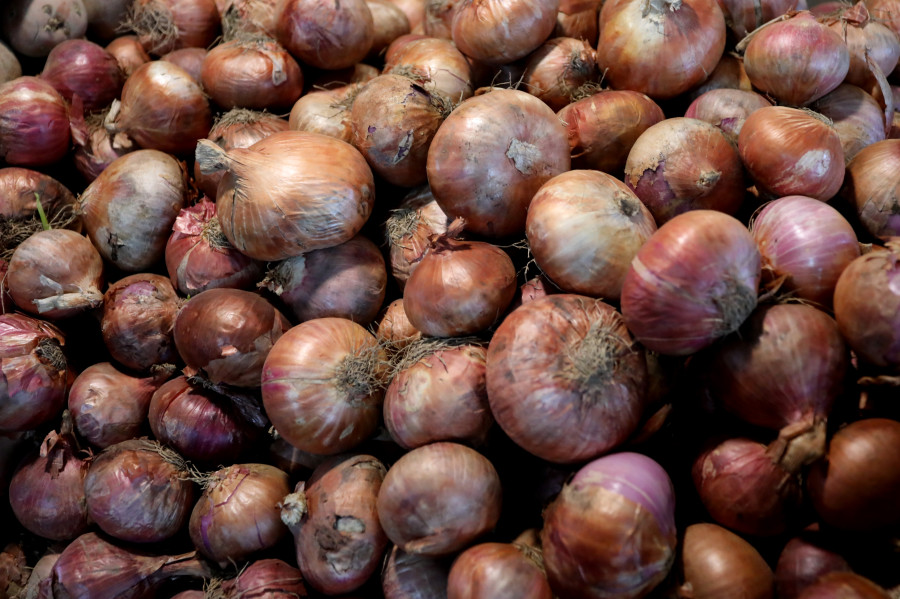Money
Onion prices hit record Rs200 per kg as Indian supply dries up
India’s ban on onion exports has sent prices soaring across Asia.
Krishana Prasain
Onion prices reached a record Rs200 per kilogram in retail markets across Kathmandu on Sunday, a four-fold rise in the last three months, as traders say there is no sign of prices cooling down any time soon. Most consumers that the Post spoke to said prices have increased beyond their imagination—and they have started skipping the onion from their daily meals.
Nepal is dependent on onions imported from India due to inadequate domestic production. In September, India imposed a ban on the export of onion due to a lack of adequate supply in its home markets.
Resham Tamang, the administrator at Balkhu Fruits and Vegetables Market, said the market has not received even a sack of onion from India for the last several days. “Most consumers have also started avoiding onions,” he said.
According to Indian media reports, prices have shot up due to a shortage triggered by unseasonal rainfall leading to crop damage in the main onion growing zones in Maharashtra, India. Traders fear a further spike in onion prices as a high amount of crops have been damaged by the unseasonal November rains.
Some traders have started importing onions from China but said Nepalis don’t like Chinese onions because of its taste.
Sharmila Mahat, a housewife from Sitapaila, told the Post that she did not expect prices jump to this level. “It’s Rs200 per kg. We cannot afford it.”
The 46-year-old housewife said it’s hard to imagine cooking vegetables without onion. But she plans to exclude onions from her kitchen until the price normalises.
Onion was priced Rs175 to Rs180 per kg a week ago. The price started to jump in Nepal as soon as the Indian government banned its exports in September.
According to the Economic Times, the ban could be extended to until February as domestic prices in India have risen after the harvest of summer-sown crops was delayed and damaged by untimely November rains.
“The ban on overseas sales by India, the world's biggest exporter of the bulb, will keep prices elevated in Asia and require importers in Nepal, Bangladesh and Sri Lanka to find other sources to fulfil their demand,” the report said.
Binaya Shrestha, deputy director at Kalimati Fruits and Vegetables Market Development Board, said that despite the ban, the market has been receiving 45-50 tonnes of onion from India daily that are being imported through the porous border points.
Besides, thousands of households living in the Nepal-India border points buy onions at Indian markets as prices are relatively cheaper there, according to traders.
Shrestha said that the market has been receiving 5-10 tonnes of Chinese onions daily. “As consumers prefer Indian onions, demand for Chinese onion is not big in Nepal,” he said, adding that it’s because of the taste. According to him, the wholesale price of Chinese onion is Rs155 per kg.
Before the ban, Kathmandu used to receive 80-90 tonnes of onions daily, said Shrestha.
The country imported onions worth Rs1.3 billion during the first three months of the current fiscal year beginning mid-July. In the same period last fiscal year, onion imports amounted to Rs1.2 billion.
India’s ban on onion has not only impacted Nepal but other South Asian countries as well. In the last fiscal year, Nepal imported onions worth Rs5.62 billion from India.




 18.12°C Kathmandu
18.12°C Kathmandu













